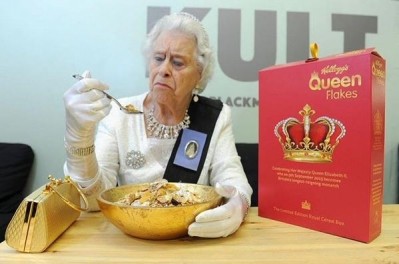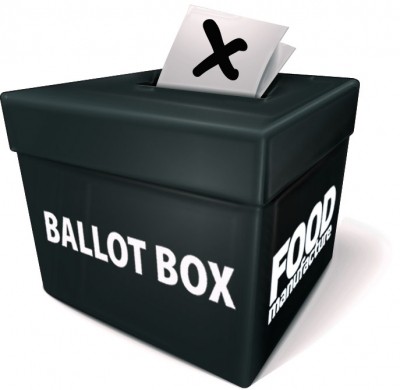Queen’s Speech heralds support for small suppliers

According to the Cabinet Office, the Bill would create a Small Business Conciliation Service to help resolve business-to-business disputes, particularly over late payment, and reduce the burden of regulation on small businesses.
It would also help strengthen the UK’s competitiveness and back businesses to create jobs, the government said.
“Small businesses often have the law on their side, but find accessing the legal system complex, time consuming and expensive,” said John Allan, national chairman for the Federation of Small Businesses (FSB), which has campaigned against mistreatment of suppliers through late payments for some time.
“A properly constituted conciliation service should help with this and go some way to addressing major problems like the UK’s poor payment culture.”
‘Struggling businesses’
Tracy Ewen, md of IGF Invoice Finance, commented: “To have this Bill included in the speech should give hope to many struggling businesses that the government is serious about the need to protect small to medium-sized enterprises (SMEs) and bring an end to the issue of late payments.”
“The current payment terms that many suppliers in the UK are subjected to mean that goods delivered today wouldn’t need to be paid for until long after summer is over.”
“The implementation of a Small Business Conciliation Service should protect SMEs against larger and more powerful entities, and should reduce the number of SMEs that fold due to intense cashflow problems.”
Ian Wright, director general of the Food and Drink Federation, said: “We will be looking closely at the Enterprise Bill, as all regulation must be evidence and science-based. We have supported the deregulatory steps already taken under the last parliament and look forward to further measures that will make it easy for small food and drink businesses to start up and succeed.”
Food and drink processors are increasingly wrestling with late payments not just by retailers but by larger manufacturers and equipment suppliers.
Mars
A year ago the Forum of Private Business accused confectionery firm Mars UK of stringing out the time it took to pay suppliers. 2 Sisters Food Group faced similar criticism in December 2014.
The FSB assembled a cross-party group in January this year to tackle supply chain bullying as a wider issue than just late payments.
Commenting on other aspects of the Enterprise Bill, Allan said: “When setting out to tackle the burden of red tape, it’s important not only to identify obstructive regulations, but also look at how regulation is enforced. Poor enforcement or excessive monitoring requirements can turn straightforward regulations into costly and disruptive burdens.”
National Farmers Union (NFU) president Meurig Raymond said: “The NFU’s lobbying on better reducing ‘red tape’ has been recognised in the proposed Enterprise Bill and we hope that we can speedily implement recommendations on better regulation for food and farming from the Macdonald report.”
Referring to the introduction of an EU Referendum Bill in the Queen’s Speech, Wright said: “UK food and drink manufacturers want to be part of a strong, outward facing, competitive EU that leads through innovation supported by science and evidence based policy making. We call on the Treasury to publish full economic assessment of the options as part of the European Union Referendum Bill.”
Referendum
Allan added: “The referendum will inevitably bring a period of uncertainty, which should be resolved as soon as possible. However, we must also ensure there is adequate time allotted to fully explore the options on the table.
“Small businesses must be able to fully understand and participate in the debate – discussing the economic case and what meaningful reforms are achievable before deciding how to cast their vote.”
Raymond said: “We will need more clarity on what life inside and outside the EU will mean for British farmers. Following that, the NFU will be producing detailed analysis of the pros and cons of EU membership, taking into account the terms of the renegotiation process.”
On the announcement of an Immigration Bill designed to manage immigration better, Wright said: “We support the drive to home-grown talent and have taken steps as an industry to develop our pipeline at all levels so our industry can thrive.
‘Skills shortage’
“However, there remains a serious skills shortage in our sector and we need to ensure that industry has the talent it needs to remain competitive.”
Raymond welcomed the announcement that income tax and national insurance would not increase for the next five years, which he said would help farmers manage their cash flow.
He also supported commitments to report on progress to create three million new apprentices and two million new jobs were also welcomed by Raymond. “The NFU is pleased to be involved in the government’s Apprenticeship Trailblazers initiative to reform apprenticeship standards across agriculture – the number of people starting apprenticeships in agriculture has risen 30% over the past five years,” he said.
“The NFU’s top priorities are a long-term strategy for food and farming and a full implementation of the 25-year TB [tuberculosis] eradication strategy. Although these weren’t mentioned in the Queen’s Speech we look forward to working with the government to ensure these and our other lobbying asks are put into action.”
















